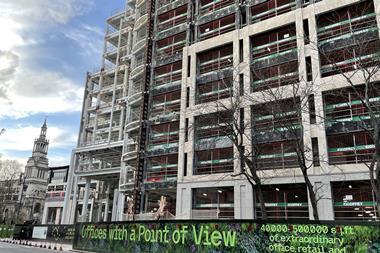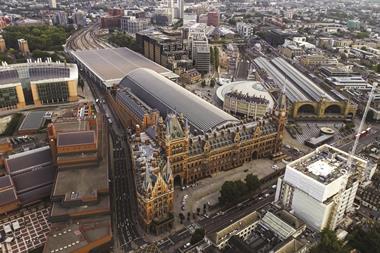How fitting that we start 2022 with something of a catch-22 dilemma: a hospitality sector that cannot get the lockdown-magnitude help it is demanding – and desperately needs – because the current Covid restrictions do not constitute an official lockdown.

As anyone who ventured out over Christmas will know, it is a lockdown in all but name. Even if restaurant, bar and pub goers hadn’t steered clear in their droves, their staff went down in such numbers with Covid that many were forced to close temporarily, exacerbating an already parlous trading situation.
Now, as we try and rustle up some enthusiasm for 2022 while working from home at the start of a third year under the cloud of Covid, hospitality businesses are damned if they do open (because they won’t make much money, and their staff and customers might catch Covid) and damned if they don’t (because they won’t make any money and, as there is no official lockdown, there is not a compelling enough reason to pivot to takeaways and deliveries).
They deserve better. While bumbling Boris is introducing no new restrictions at the same time as putting the NHS on a ‘war footing’, his chancellor has offered the sector a pitiful £1bn bailout – equating to just £2,700 to £6,000 per premises. Talk about applying a sticking plaster to a gushing wound. Rishi will have to dig a lot deeper than that if hospitality businesses are to survive – and landlords will have to show further largesse, too, or they’re going to find themselves with a lot of voids to fill and no one to fill them.
If hospitality businesses do get over the hump, and at this stage it is a big if, a brighter future could beckon for many, as it already does for the retailers that have survived the pandemic (along with everything else).
What hasn’t killed them has made them stronger and many of the experts sharing their thoughts on the year ahead in our 2022 forecast are upbeat about retail’s prospects. The view seems to be that it has hit rock bottom and the only way is now up. LaSalle Investment Management’s deal to buy Cheshire Oaks and the Swindon Designer Outlet from Nuveen Real Estate for £600m certainly bodes well, as does the level of activity in December. No wonder Savills is so bullish, forecasting that shopping centres may see the greatest rise in investment of any sector this year and that, gulp, by 2026, they could well be showing the best total returns.
The big question is whether the office sector recovery will continue. If WFH becomes more of a thing than it is already, it might falter. However, WFH could have the opposite effect as fatigue mounts and this sector, too, adapts to the new terrain.
One sector whose future is in no doubt is industrial and logistics, with SEGRO’s David Sleath, fresh from being awarded a well-deserved OBE for services to charity and business, continuing to lead the way. Sleath cites his team’s “positive impact on our communities and charities” and “the importance of operating our business in an environmentally and socially conscious way”, observations that chime with a recurring message in our forecast: that 2022 will be the year of ESG, with the emphasis on the ‘S’.
I can think of another word beginning with ‘s’ that summed up 2021 and 2020. Here’s to it being supplanted once and for all by the word ‘social’ in 2022.






























No comments yet